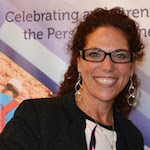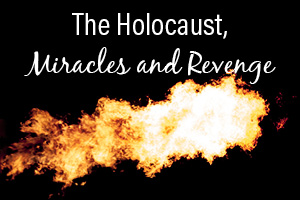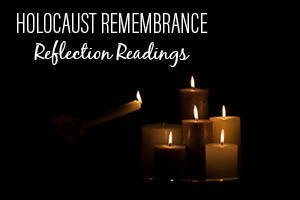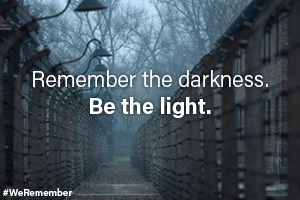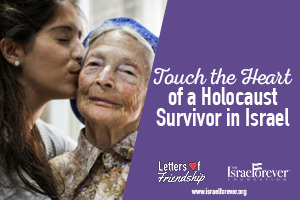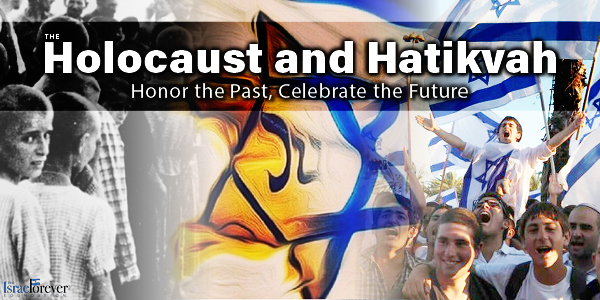Holocaust memory continues, but knowledge is fading
Holocaust memory has shifted dramatically again and again throughout the last 70 years. Survivors, academics, historians and educators have worked tirelessly to incorporate the Holocaust into educational systems around the world. From personal memory to comparative analysis, the Holocaust has indeed become an integrated dimension of history, civil discourse, legislation, even resulting in contention between competing narratives or comparative suffering which sadly diminish the truthfulness of the Holocaust and its uniqueness.
Elie Wiesel played a significant role in the various transformations, as he dedicated himself to the transmission of memory and meaning of the Holocaust experience and significance for humanity. He was committed to the distinction between particularism and universalism, and how each possesses its own value in ensuring that the many lessons of the Holocaust are translated for future generations.
Each year, many Jews face the challenges of International Holocaust Memorial Day vs Yom HaShoah, but there are indeed many benefits - each day of memory could serve each of these aspects of its meaning. And, in fact, we do need both.

A day for Jews to remember need not lose significance annually and eternally as our day to come together as a global Jewish community to remember our brethren so senselessly persecuted, tortured, murdered for being Jews. We must remember the names of the survivors we have met, the stories we have inherited. We must continue to ensure that the Jew is not erased from the internationalization and subsequent generalization of the Holocaust. International Holocaust Memorial Day can be an aide or preventative measure to Holocaust denial and the protection of truth, but so, too, can Holocaust education.
In best case scenarios, the educator is informed, well-read, and passionate about finding ways to connect. They are unwilling to reshape the Holocaust experience away from the aspects of its history that center around the extermination of the Jews. They use facts, personal stories, and open discussions with their learners to help them open their own minds to the painful truth. Too much of Holocaust memory, however, is transmitted via mainstream, viral messages that barely delve beyond the surface of the reality of that hell on earth.
Whatever portal of access one might have, learning about the Holocaust should be a lifelong process - but that happens primarily for those who are willing to bend their expectations and explore the world of humanity immersed in inhumanity. We have to suspend our belief that we have heard it all, that we know enough.

Because after more than 30 years since immersing myself in this world, I can only say, again and again, how much more there is to know, so much more to learn from in our efforts to save humanity, protect memory, ensure our history and heritage are passed down for future generations just as our biblical tales have done for 3000 years.
It is up to each one of us to continuously ask ourselves the tough questions - not just once a year, but whenever the association might arise. Only deep understanding will allow us to overcome the distorted lies of the revisionists and distortionists, the outright deniers and the Anti-Zionists, anti-Israel associationists who have successfully morphed “Israel” into a newer version of Holocaust denial and of Antisemitism in a professionalized form.
As I embark once again to Poland, to guide the grounds of our ancestral communities since destroyed, and the ground soaked with their blood, I thought to propose a challenge to all of you:
You have been to the museums, you have studied in schools, you have read several memoirs or novels, you have seen all the top films. Do you have a basic working knowledge of the Holocaust?
At a recent presentation to Anglo young professionals in Givat Shmuel, as always, I opened up the discussion by asking them to ask me questions of their own, questions burning within, questions they may even have been too embarrassed to ask before. All those in attendance were well-educated, having learned about the Holocaust in more than one setting and opportunity, many having been to Poland on the March of the Living or other trips.
What I discovered was not only the extent to which some of the more crucial facts about the Holocaust so easily get lost as time passes, but also that the access to answers to the difficult questions are just as important as the basic, for they drive our understanding of our collective responsibility to carry on the memory in a meaningful way - beyond lighting the candle or reading the name; beyond the poem or the artwork; beyond the emotional agony we feel as our hearts are wrenched by each story of suffering.

COURTESY OF AUSCHWITZ HISTORICAL MUSEUM
Explore these questions - once, 10 times, come back to them again and again. For each time, you can find something that will drive you to search for that answer. And that answer will open up yet another question. And that will keep us eternally connected to the truth of then and its purpose and relevance now and forever.
REFLECTION QUESTIONS
- How can we ensure the portals of entry lead to a realistic, truthful representation of both the history and the unique Jewish experience under the Nazis?
- How can the average person decipher what is crucial or periphery knowledge or information?
- How can one wade through the fiction for the truth?
- Is there a negative impact of Holocaust memory on Jewish identity?
- Is the Holocaust used as a tool for peptuating “victimhood?”
- Is there a difference in how to teach Jews vs. non-Jews?
- Are we prepared for the next generation without survivors?
- What is the responsibility of the 2nd and 3rd generations?
- What is the legacy we are passing on to the future generations of descendants? Is there something innate about their responsibility?
- Are they any more responsible for the protection of memory than the rest of the Jewish people?
- When did Holocaust denial begin?
- How has it changed over the years? Denial to BDS transition
- What are the top 3 tools necessary to confronting a Holocaust denier?
- Facts vs. Emotionalism
- How can the common Jew contend with the abuses of the Holocaust by the anti-Israel/anti-Zionist streams?
- How do you know when to respond or when to ignore and walk away?
- How can we “frame” Holocaust memory in a way that it retains its uniqueness without desecrating the memory of other victims of Nazis?
- How can we contend with illegitimate comparisons to other genocides?
- How can we ensure that “Never Again” and “Never Forget” are not empty catchphrases that lack meaning, direction for action, or are distorted for alternative purposes?

Recommended for you:
HOLOCAUST AND HATIKVAH
Explore the connection between Holocaust, Hope and Israel in our effort to remember and make meaning out of our history as a people.
About the Author
